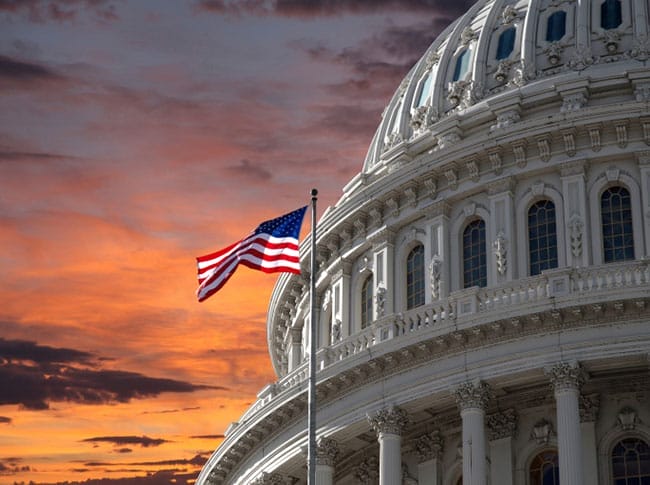For its entire 134-year history, Wharton has been synonymous with premier business education. Wharton graduates include titans of finance, captains of industry and innovators in technology—heck, Elon Musk C97 W97 is basically all three. But Wharton doesn’t only prepare its graduates for careers making big bucks. My Wharton training has already prepared me for work in policy and advocacy.
Since high school, I have been interested in substance abuse policy. I researched substance abuse treatment options in the Patient Protection and Affordable Care Act, testified about prevention policy before the Pennsylvania Senate and was appointed to a local government board that allocates funds to substance abuse health providers. My parents, colleagues and research advisers had assumed I would major in psychology, political science or pre-med—and so when I announced my intention to apply to Wharton, they were a bit confused.
They asked: Business? What does business have to do with substance abuse?
Successful policy is almost always informed by good business sense. So many people who work in policy have great ideas, but only the best know how to implement them. I wanted to spend my undergraduate years learning the art of getting stuff done—and I felt Wharton was the perfect place to do it.
Two years into my Wharton education, I am happy to report that my choice to major in business was a wise one. I have already applied lessons from my business education to my work influencing policy.
For example, I chaired a committee tasked with creating a multiyear strategic plan for substance abuse services across my home county, Bucks County, Pennsylvania. To gather input from board members, paid staff and other stakeholders, I used concepts from the 360-degree feedback mechanism, a method of gathering input from all stakeholders that I learned in my Management 100 class, taught by Center for Leadership and Change Management Senior Fellow Chris Maxwell. I applied the strategic frameworks, including the 5 C’s, SWOT, and Marketing Mix analysis, from Adjunct Associate Marketing Professor Keith Niedermeier’s Introduction to Marketing (MKTG 101) class to structure the strategic plan. Wharton’s emphasis on data-based outcomes motivated me to set data-based S.M.A.R.T. goals (Specific, Measurable, Achievable, Realistic and Timely) that would measure our efficacy. The final plan was professional, operational and well received, and I credit my Wharton training for its success.
Beyond the highly practical and applicable nature of a Wharton course, attending Wharton has afforded me opportunities to sit down, one-on-one, with business experts to discuss challenges I have faced in forming opinions about policy. In my experience, Wharton faculty members are more than happy to help their students apply what was taught in class to a topic or problem of personal interest. For example, while working as a member of my county’s drug and alcohol board, an agency that provides treatment services to county residents requested a rate increase. Board members were hesitant to approve the increase given the county’s tight budget and fiscal responsibility to its citizens. However, we also understood a rate increase could help the agency invest in capital expenditures that would ultimately increase its efficiency. We needed a way to negotiate a rate increase that would be fair and would incentivize the agency to improve in the long-run.

Prof. Christopher Ittner
I told my managerial accounting professor, Wharton’s EY Professor of Accounting, Chris Ittner, about the predicament, and he spent over an hour with me explaining negotiation strategy and responsibility accounting. He told me to look at the agency’s main cost drivers and to request a plan on how services would improve, given a rate increase. I took my professor’s suggestions to the board, which used several of his strategies in its negotiations.
Wharton’s relationship with policy extends beyond the classroom. Wharton formalized its commitment to training a generation of policy leaders with the 2012 creation of the Penn Wharton Public Policy Initiative (Penn Wharton PPI), intended to bridge “the intellectual divide between business and government.” Penn Wharton PPI connects undergraduates with some of Wharton’s most recognized faculty members to engage in policy-related research, affording undergraduates unparalleled access to policy thought leaders, and also offers stipends to Penn students who accept unpaid or underpaid policy-related internships at government or nonprofit agencies. Over the past two summers, 169 Penn students received such funding. The University’s investment in and the success of Penn Wharton PPI are evidence of the compatibility of business thinking and policy action.
As I advance my career and become more involved with policy formation at the state and federal levels, my Wharton education has given me the skills I need to make practical, operational and data-based decisions with confidence. I look forward to bringing the business sense and frameworks I learned on campus to the policy arena.
Wharton’s training has taught a generation of undergraduates the skills to become superior decision-makers and policy analysts who make government more effective and efficient. So watch out, Washington. Wharton is already there.

























